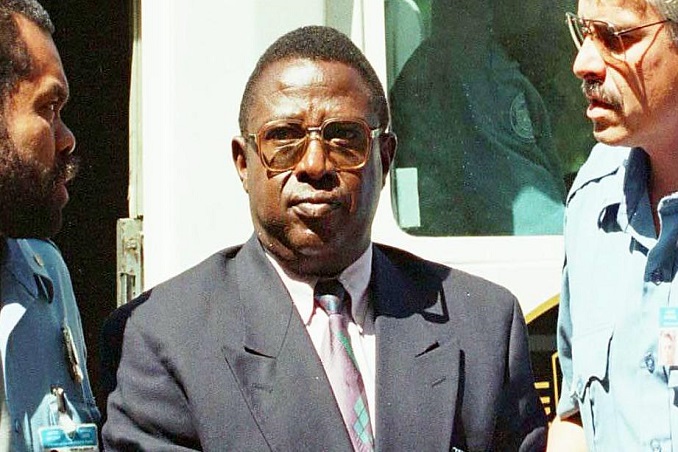![]() – Rwanda – Theoneste Bagosora was known as the “Colonel of the Apocalypse” or the “Himmler of Rwanda.” Following a stellar military career that propelled him to the highest levels of power, he became the “mastermind” of Rwanda’s genocide in 1994.
– Rwanda – Theoneste Bagosora was known as the “Colonel of the Apocalypse” or the “Himmler of Rwanda.” Following a stellar military career that propelled him to the highest levels of power, he became the “mastermind” of Rwanda’s genocide in 1994.
At the age of 80, this Rwandan army colonel died in Mali, where he was serving a term for genocide, crimes against humanity, and war crimes. He was originally convicted of life in prison by the International Criminal Tribunal for Rwanda (ICTR) in Arusha (Tanzania) in 2008, but his sentence was reduced to 35 years in jail in 2011 after an appeal.
According to the United Nations, the individual who held the office of Director of Cabinet at the Rwandan Ministry of Defense in 1994 has consistently denied any involvement in the genocide that killed 800,000 people in a hundred days, primarily among the Tutsi minority. In front of his judges, he also denied saying fifteen years ago in Arusha that he was returning to Rwanda “to prepare for the Apocalypse,” effectively shutting down talks between the Rwandan government and the Rwandan Patriotic Front, a Tutsi rebel group (RPF).
During these meetings in Tanzania, he was at odds with Boniface Ngurinzira, Tanzania’s Foreign Minister, whom he accused of making too many concessions to the insurgents. Ngurinzira was slain by soldiers on April 11, 1994, five days after President Juvenal Habyarimana’s plane was attacked, triggering the first murders of Tutsis and moderate Hutus.
Bagosora, along with former Rwandan Armed Forces (FAR) Chief of Staff Laurent Serubuga, is described as a “regime extremist” and one of the “primary backers of the April 6, 1994 attack” in a French intelligence memo released in 2019. The memo continued, “The assassination of ministers of the moderate opposition and of Tutsis less than half an hour before the presidential Falcon was blown up would demonstrate the operation’s great level of preparedness.”
Related Posts
“Their retirement in 1992 by President Habyarimana, when they were seeking to acquire the rank of general, was the source of enormous hatred,” it says. Bagosora and Serubuga “have long believed themselves to be the genuine successors of the government.” Bagosora and Juvénal Habyarimana, who hail from the same province of Gisenyi (northwestern Rwanda), have been friends for more than 20 years.
Officer Bagosora, as the commander of his unit, had played a key role in the coup d’état against civilian president Grégoire Kayibanda on July 5, 1973, which brought Habyarimana to power. Agathe Kanziga, Juvenal Habyarimana’s influential wife and one of the leaders of the Hutu regime’s “hardliners,” is the godmother of his eldest daughter, born in 1967.
Bagosora was born into a Christian household in the village of Giciye and attended a Catholic minor seminary before pursuing a military career. His military career was highlighted by significant military exploits, which, when paired with his acquaintance with Habyarimana, led to positions in the Ministry of Defense and army command. He was the director of the cabinet at the Ministry of Defense in 1994.
Following the attack on Habyarimana, he was de facto the country’s senior military authority between April 6 and 9, 1994, the first days of the genocide, which saw the country descend into misery. The Minister of Defense was on a diplomatic mission at the time, and the army’s Chief of Staff had recently perished with the President.
In this regard, the courts that sentenced him retained his duty. Unlike the trial judges, the appeals chamber did not conclude that the colonel authorized the acts for which he was charged, but it did find that he knew the abuses were going to happen and did nothing to stop them, despite having the power to do so.

